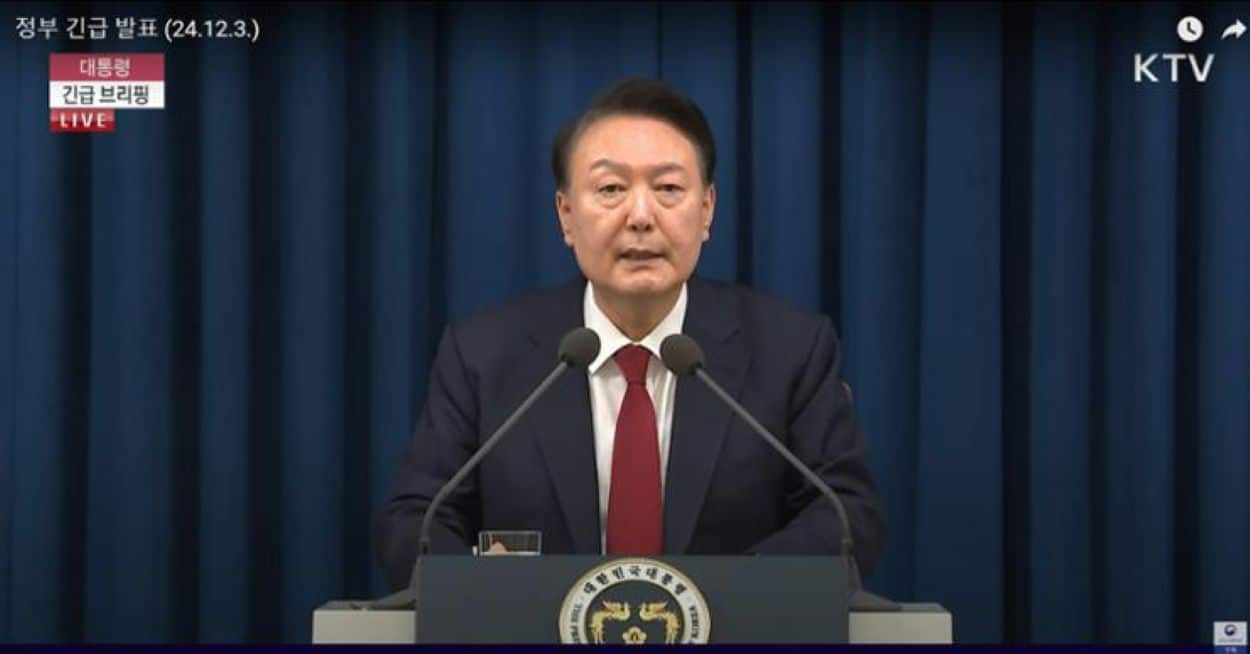On Wednesday, South Korean President Yoon Suk Yeol announced the lifting of a martial law declaration made just hours earlier after facing overwhelming opposition from parliament. The assembly had unanimously rejected his attempt to ban political activities and censor the media.
Yoon’s Tuesday night declaration aimed at curbing what he called “anti-state forces” among his political rivals, plunged South Korea into its deepest political crisis in decades. By early Wednesday, following unanimous legislative opposition and public outcry, the cabinet agreed to rescind the martial law, as reported by Yonhap news agency.
Celebrations erupted outside the National Assembly, with protesters chanting, “We won!” as one demonstrator played a drum. The main opposition Democratic Party has since called for Yoon’s resignation or impeachment. “Even with the martial law lifted, President Yoon cannot escape treason charges,” stated Park Chan-dae, a senior member of the Democratic Party.
Danny Russel from the Asia Society Policy Institute in the United States commented, “South Korea dodged a bullet, but President Yoon may have shot himself in the foot.” Following Yoon’s reversal, the South Korean won recovered from a two-year low against the dollar, and related exchange-traded funds mitigated losses.
Read: South Korea Under Martial Law: What It Means for Its Citizens
One hundred ninety lawmakers, including members from his party, decisively voted down President Yoon’s initial declaration of martial law. They urged him to lift the decree, as South Korean law requires the president to immediately rescind martial law if parliament rejects it by a majority vote.
This crisis in South Korea, a democracy since the 1980s and a key U.S. ally with a major Asian economy has sparked international concern.
The White House welcomed Yoon’s decision to retract the martial law declaration. “We are relieved President Yoon has respected the National Assembly’s vote to end it,” a White House spokesperson stated.
US Deputy Secretary of State Kurt Campbell earlier voiced serious concerns about the situation, highlighting South Korea’s strategic significance, where approximately 28,500 US troops serve as a deterrent against North Korea.
Although Yoon cited no specific threats from the North, he focused on domestic political opponents. This was South Korea’s first martial law declaration since 1980.
Danny Russel pointed out the potential for snap elections, warning that “Political uncertainty and domestic strife in South Korea is North Korea’s gain.”
Yoon, who narrowly won the presidency in 2022 amidst dissatisfaction with economic policies and national scandals, has struggled with low popularity, with approval ratings hovering around 20%. His People Power Party suffered a significant defeat in the April parliamentary elections, losing control to opposition parties.
Since the establishment of South Korea as a republic in 1948, the government has declared martial law over a dozen times, notably in 1980, when military leaders used it to quash calls for democratic governance.






